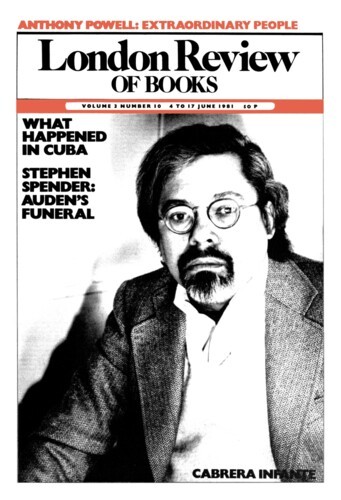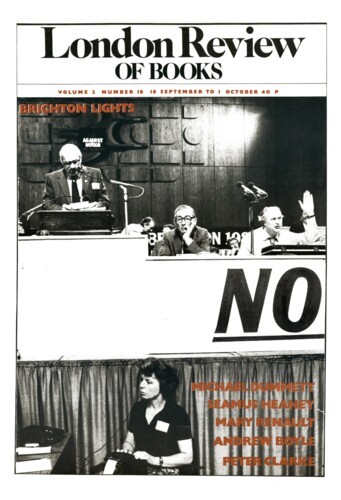Alexander the Greatest
Mary Renault, 4 June 1981
Ever since his death in mid-career, Alexander has been projecting from his undiscovered tomb the powerful presence he exercised in life. To those around him, his magnetism was not mysterious: it was a natural phenomenon with which they lived. Once his contemporaries were dead, it became a legend: something transcending his recorded acts, and a receptacle for every kind of fantasy. He was adopted and adapted by every civilisation he contacted in his lifetime, and by later ones of whose existence he never dreamed: he was taken up by medieval romances as a parfit gentil knight, by Renaissance painters as a grandiose operatic soprano, by William Woodthorpe Tarn as an English gentleman. More recently, he has offered a banquet to fashionable reductionists, who know by instinct that anyone widely admired and honoured must be rotten at the core, and has been presented as a kind of catch-all fascist by committed thinkers who can believe without trouble that Jesus Christ was a freedom-fighting guerrilla. Some of these trials have recalled irresistibly ‘Rex v. Knave of Hearts’ in Alice: ‘Sentence first, verdict afterwards.’ We have here, however, two jurors who have considered their verdict.


